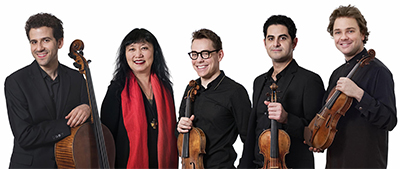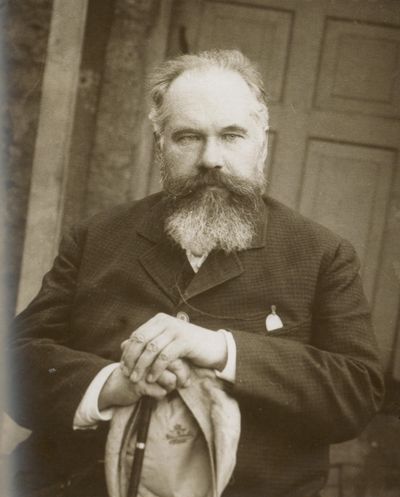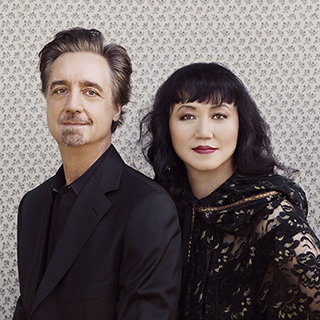by Mike Telin

“I’m so excited to be able to play this program,” pianist and CMS artistic director Wu Han said during a telephone conversation. “People know the names Rachmaninoff, Tchaikovsky, and Prokofiev, but they may not know these pieces, and Sergei Taneyev is a name that music lovers in the United States should be more familiar with.”
Han, who will be joined by her CMS colleagues Arnaud Sussmann and Alexander Sitkovetsky, violins, Matthew Lipman, viola, and Nicholas Cannellakis, cello, said the program is built around the relationship that Taneyev had with Rachmaninoff, Tchaikovsky, and Prokofiev.
“He was Rachmaninoff’s and Scriabin’s teacher, and he claimed that he was Prokofiev’s teacher as well. And at one point, Tchaikovsky was Taneyev’s teacher.”
Sergei Taneyev (1856 – 1915) was the first person to win the Gold Medal in composition and performance at the Moscow Conservatory. When Tchaikovsky left his post at the conservatory, he was replaced with the then 22-year old Taneyev, making him the school’s youngest teacher.

Han said that she been aware of Taneyev 45-minute quintet for some time, but it wasn’t until she looked at the score that she realized how difficult the piece was. “I remember getting the music and thinking, this is so hard. There is no way I will ever be able to play this.” But the pianist fell in love with the quintet, and decided that she needed to “conquer it.”
After a year of learning the piece, it took another year for her to organize an ensemble to perform it. “I took it on tour to the Far East and then to Music@Menlo where I recorded it. I played it in New York with the Escher Quartet and people went wild. I’m now comfortable with it, but it’s been 3 or 4 years.”
Han noted that the work is one of the composer’s most well-constructed pieces for many reasons. “The harmonic language is incredibly rigorous, and the writing is very symphonic. Every player carries a load of responsibility and needs to know the entire score inside out or it will fall apart.”
Given his position and the notoriety he received during his lifetime, why hasn’t Taneyev’s music become more popular in the United States? “He didn’t enjoy administration, so he only lasted five years as the director of the Conservatory. He decided to devote more time to composition and teaching, then, when the Revolution happened, he became a recluse. Many musicians went to visit and play for him, but he was not interested in taking on a public position. He died in 1915 after catching pneumonia while attending Scriabin’s funeral.
Another reason Han cited for the absence of Taneyev’s quintet on concert programs is the tendency to program pieces that the audience already knows and loves. And when it comes to piano quintets, those are the the ones by Schumann, Dvořák, and Brahms.

Creating adventurous programs is a mission of Wu Han’s and the Chamber Music Society. She said that Tuesday’s program is wonderful because the Rachmaninoff and Tchaikovsky are beautiful pieces that unknown to most people. “I call this a trust-building program. The goal is to get you in and have you leave saying ‘OMG that was so amazing — I want to check out and learn more about chamber music.’”
The program also highlights that fact that many times, new music does not only mean works that were written within the past year. “Even with a piece by Mozart, if you have never heard it, then it is new,” Han said. I have done a lot of start-up projects, and when there is a blank slate when it comes to classical music, all of it is brand-new to the audience. It’s something that I’m passionate about. There’s no excuse for those who love chamber music so much not to expand the repertoire and the understanding of the art form.”
When it comes to selecting her collaborators, Han said she is always seeking out serious and engaging musicians who play at the highest level. “Another great thing about these young people is that they are all interesting human beings who are living fascinating, multifaceted lives. As a musician you need to have that. It brings perspective, so they’re not just instrumentalists with great ability. They know how to be team players and they are a pleasure to be around. I have so many interesting musicians who all contribute in different ways. It’s just a great group of people.”
Published on ClevelandClassical.com March 6, 2019.
Click here for a printable copy of this article


